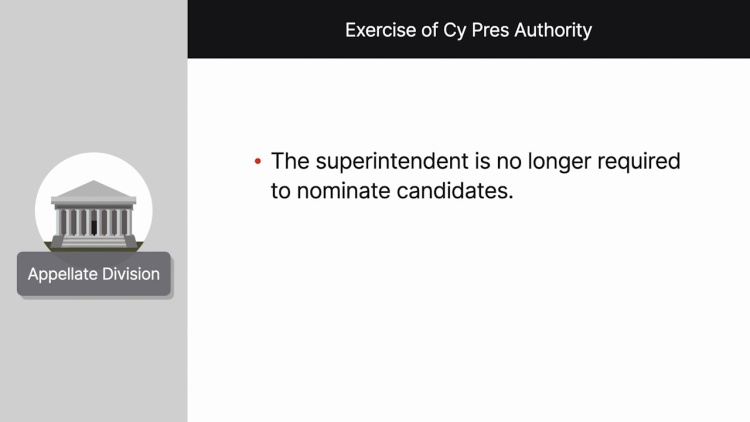Estate of Wilson
New York Court of Appeals
59 N.Y.2d 461, 452 N.E.2d 1228, 465 N.Y.S.2d 900 (1983)
- Written by Jamie Milne, JD
Facts
When Clark Wilson died, his will created a testamentary trust, the income from which was to provide scholarships to young men from Canastota High School who attained the highest grades as certified by the school district’s superintendent. A complaint was eventually filed with the United States Department of Education, alleging that the superintendent’s certifications violated a federal statute prohibiting gender discrimination. The trustee (plaintiff) filed suit seeking a determination of the validity of the trust’s terms. The New York Surrogate’s Court held that the superintendent’s certifications did not violate federal law or implicate the Fourteenth Amendment’s Equal Protection Clause. The New York Supreme Court’s Appellate Division found the superintendent’s involvement problematic and reformed the trust so that students applied directly to the trustee rather than being certified by the superintendent. Separately, the death of Edwin Johnson created a testamentary trust to provide scholarships for young men graduating from a different school district. The district’s board of education was the appointed trustee. A complaint was filed with the US Department of Education, alleging that the school district’s involvement constituted illegal gender-based discrimination. In a resulting suit by the state attorney general (plaintiff), the Surrogate’s Court reformed the trust by replacing the school district with a private trustee who could effectuate Johnson’s intent of providing scholarships for men without it constituting government discrimination. The Appellate Division reversed, reasoning that by judicially replacing the trustee to facilitate ongoing enforcement of the discriminatory trust, the state court was engaging in discrimination violating the Equal Protection Clause. The Wilson and Johnson cases were consolidated for appeal.
Rule of Law
Issue
Holding and Reasoning (Cooke, C.J.)
What to do next…
Here's why 907,000 law students have relied on our case briefs:
- Written by law professors and practitioners, not other law students. 47,100 briefs, keyed to 996 casebooks. Top-notch customer support.
- The right amount of information, includes the facts, issues, rule of law, holding and reasoning, and any concurrences and dissents.
- Access in your classes, works on your mobile and tablet. Massive library of related video lessons and high quality multiple-choice questions.
- Easy to use, uniform format for every case brief. Written in plain English, not in legalese. Our briefs summarize and simplify; they don’t just repeat the court’s language.





